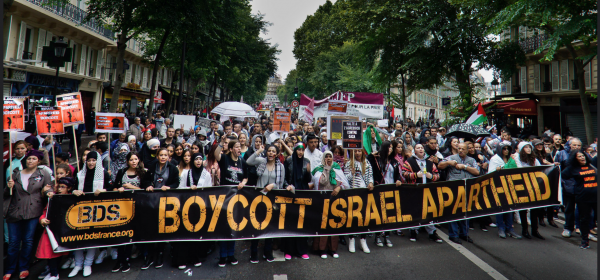BDS
Boicot, Desinversión, Sanciones (BDS) es un movimiento dirigido por palestinos por la libertad, la justicia y la igualdad. BDS sostiene el principio simple que los palestinos tienen derecho a los mismos derechos que el resto de la humanidad.
Acerca
¡Participa!
La lucha del pueblo palestino por libertad, justicia e igualdad necesita tu apoyo. Es simple participar en el movimiento BDS
¿que puedo hacer?
Campañas
Las campañas de BDS están construyendo el apoyo público y teniendo un impacto real.
Área de campañas
Campañas globales
Mantente al día
Sigue nuestras redes sociales
Your subscription could not be saved. Please try again.
Your subscription has been successful.
* Informacion requerida

